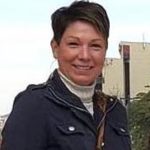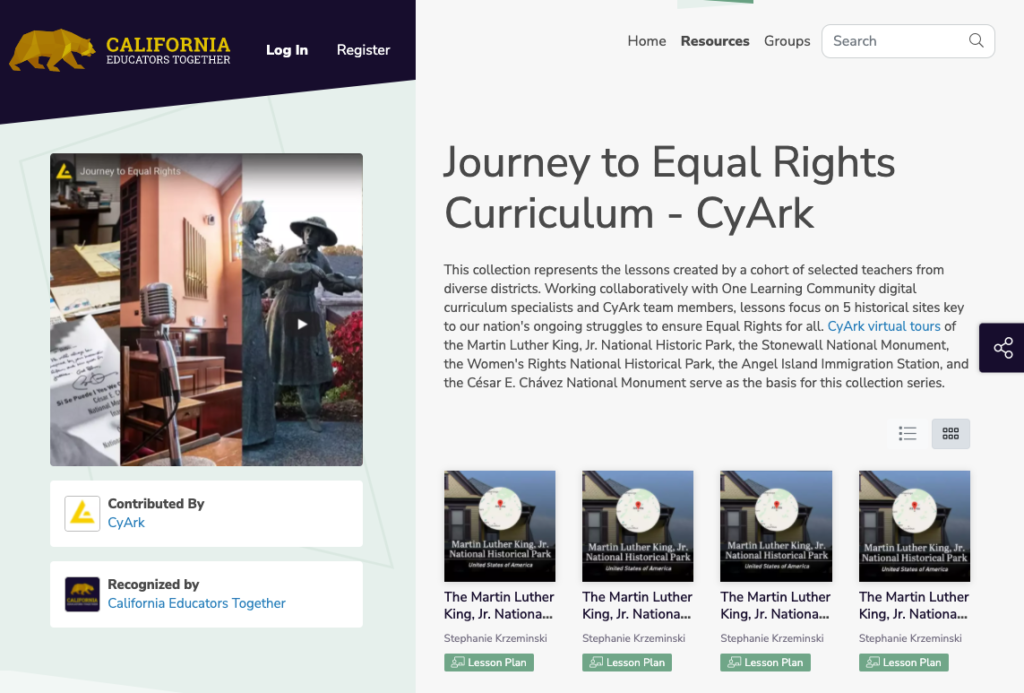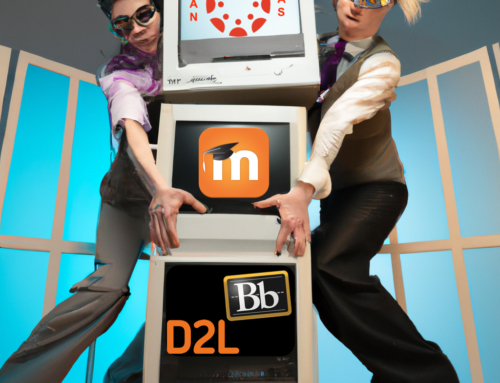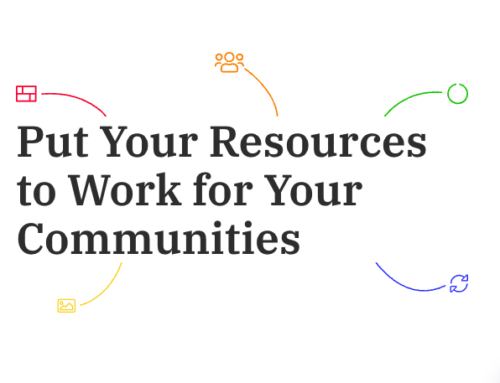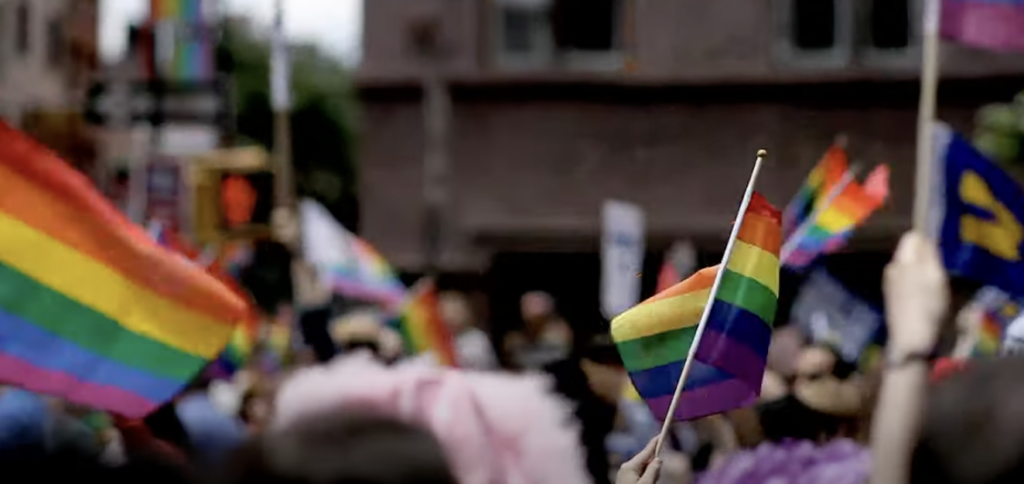
We asked ourselves, how do we feasibly connect…
- 5 specific National Park & Monument sites, and a State Park located upon an island in the San Francisco Bay,
- a cohort of History and ELA educators from across the nation matched with digital curriculum coaches based in Lake Tahoe,
- a new series of tools and resources designed for the largest State Education Agency in the nation looking to test out methods to better connect teachers and their classroom learning design/approaches,
- a nonprofit based in Oakland CA that has digitally recorded and archived over 200 historical sites around the globe,
and finally
- a program goal to help our country more deeply examine the plight for Equal Rights as expressed through the stories of struggle and ongoing perseverance across various communities.
At One Learning Community, we began to reflect on the possible connections between these items early last April, when we received an interesting request from a specialized digital archivist team (CyArk) that works to create 3D virtual experiences of important heritage site locations from all over the world. Their stated mission:
Digitally record, archive and share the world’s most significant cultural heritage and ensure that these places continue to inspire wonder and curiosity for decades to come.
Elizabeth Clark, CyArk VP of Programs and Development, asked if we could help them with a project focusing on 5 such historical sites across the United States that each played a critical role in our country’s ongoing Journey to Equal Rights for all people.
The sites selected represented partnerships with both the National Parks and the California State Parks and their knowledgable staff and docents. These critical partners helped to capture the story and people of each unique site and the events that cemented a location’s past and present to the ongoing pursuit of equality.
- Angel Island Immigration Station, CA State Park – California
- Women’s Rights National Historical Park – New York
- César E. Chávez National Monument – California
- Martin Luther King, Jr. National Historical Park – Georgia
- Stonewall National Monument – New York
One Learning Community was recommended to the CyArk team to specifically develop digital lessons and supporting instructional materials for each of the historical sites to be used by middle and high school educators directly in class with students. The CyArk stakeholders, and funders wanted to create a project that…
“Through virtual access to these underrepresented histories, the experience will invite learners to reflect on the power of individuals to make lasting change. The Journey to Equal Rights program and accompanying lesson plans provide an opportunity for educators and students to bring these historic places and stories into the classroom and amplify the stories of activism that continue to shape our world today.”
One Learning Community proposed an approach that would include interviewing teachers from across the U.S. with specialized backgrounds in both teaching History and in identifying key literature and extended supports to diverse student populations as well as in developing digital lessons and supporting instructional materials for wide-scale distribution as OER.
The model involved placing two teachers, focused together on one of the single historical sites to collaboratively develop micro-units of personal/professional interest to them. After a month of gathering applications from interested candidates, we selected an outstanding cohort of educators with diverse experiences from both a classroom teaching perspective, and in relation to their own life-stories and historical interests. The teams spanned various regions of California to the suburbs of Chicago and from the nation’s capital in DC to Pittsburgh, Pennsylvania.
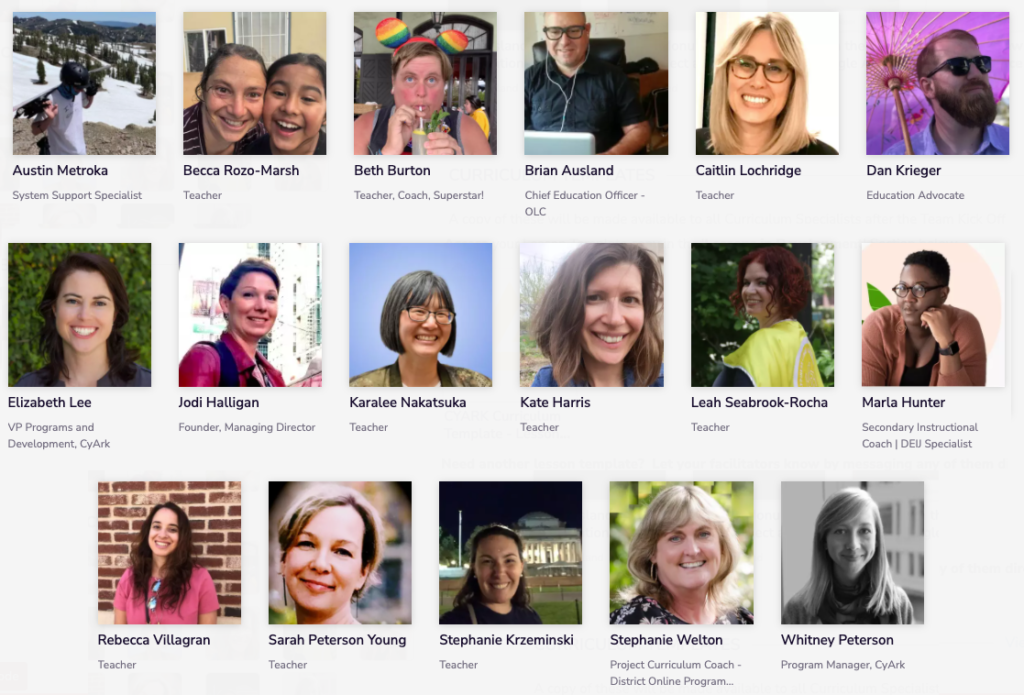
Teacher and leadership cohort for the CyArk Journey to Equal Rights curriculum project.
We also created a common, digital lesson template/tool allowing our curriculum coaches to observe and guide the development of each teacher’s ongoing curriculum and learning design strategies over the course of 6 weeks. Additionally, the group was organized in a new “community of practice” platform we had recently developed for the California Department of Education. (The CDE graciously approved hosting this project as a dynamic ‘use-case’ for their new system…and as as means to generate model lessons to guide similar projects they are planning for California teachers this current school year as part of their CARES and ESSER funding initiatives.)

Instructional coaching engagement tools tied to the lesson development and resource curation process.
As a critical piece to the success of this project, the One Learning Community team created a specialized ‘Cohort Hub’ which served as a micro-community of practice for the 2 month project. This allowed teams to remotely collaborate and share their work with one another while in progress, and connected the remote instructional coaches directly to the curriculum being developed. Digital resources and diverse OER were curated and moved in front of the teams continuously in this space as well for integration consideration into their learning activities during development.
These types of groups can either support the instructional work and connectivity for an entire district or school site, or can be used for department by department or grade-level specific cohorts within a school site. Additionally, these groups are set up for targeted Professional Learning teams and focused projects like the Journey to Equal Rights project as a means to organize teams of teachers across districts and even states in this instance.
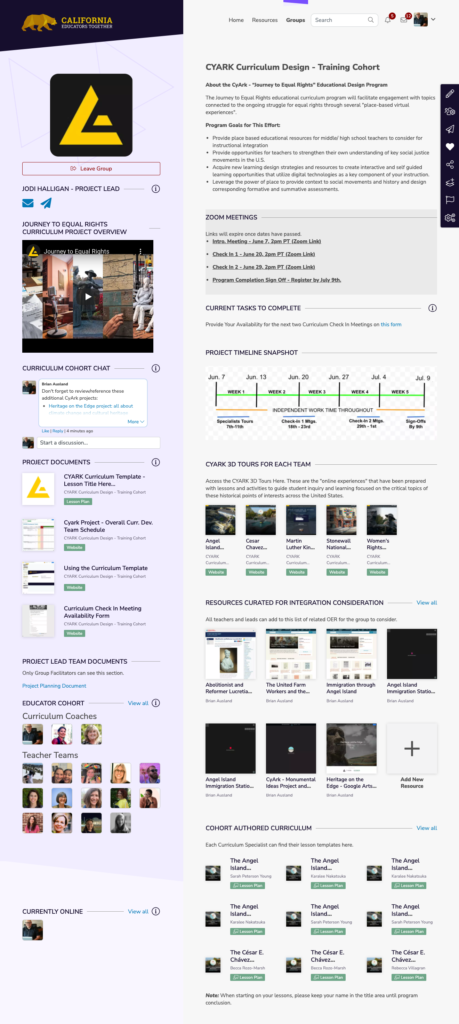
CyArk Curr. Project Cohort Hub group organization page as shown in CA’s new K-12 community of practice platform.
The resulting lessons and materials can be found in PDF & DOC formats through the CyArk Journey to Equal Rights project page, AND are jointly hosted in their original, full digital formats on the CA Educators Together K-12 Community of Practice platform for all teachers to access, use, copy, download, and/or share.
The lessons that make up each micro-unit collectively represent 3 full months of instructional activities and contain all required teaching materials to make them “classroom-ready”! And as a testament to the power of combining the instructional thinking of experienced teachers with high-quality digital resources in the context of a focused support program, the curriculum generated through this effort is poignant, inspirational, and engaging.
The Journey to Equal Rights Curriculum Collection on caeducatorstogether.org
The One Learning Community team wishes to thank CyArk and their funders in trusting us to design , organize, and support the curriculum development process. Additionally, we extend our deepest appreciation to the exceptional teachers who contributed their professional experiences and creative instructional design skills in creating an incredible series of lessons that other teachers will recognize as rigorous and engaging and ready for immediate use in classrooms across the U.S.
If you’d like to know more about this project, the materials developed, or the process to support similar efforts with your teams or districts, please feel free to contact Jodi Halligan at One Learning Community.
